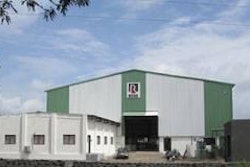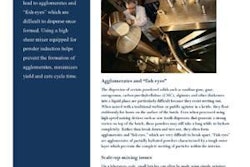An important petfood ingredient, L-carnitine, may provide many benefits to pets that consume it as part of a regular diet, a recent article says.
Dr. Johhny Lopez, who holds a Master's degree in animal science and a PhD in monogastric nutrition, says that L-carnitine aids in transporting fatty acids inside the pet's body to the cell's mitochondria, or "furnace," where they are converted into extra energy for the pet's body to use in breathing, eating, resting, metabolism and activity.
Dr. Lopez says the molecule is also important for heart health, in addition to helping the body produce more antioxidants for overall immune support. L-carnitine, with fat, helps the heart beat properly and optimizes blood flow, as the largest concentration of L-carnitine in the body is stored in the heart and skeletal muscles. L-carnitine helps keep capillary bed clamps open, allowing muscles to receive the nutrients and oxygen needed to maintain proper functioning and recovery, and, in senior pets, can also help maintain muscle mass.
He says that it is estimated that the body can only produce about one-third of its L-carnitine needs on its own, and the rest must be supplied from food and dietary supplements, which makes it even more important that a pet's regular diet includes sufficient amounts to meet its nutritional needs.













